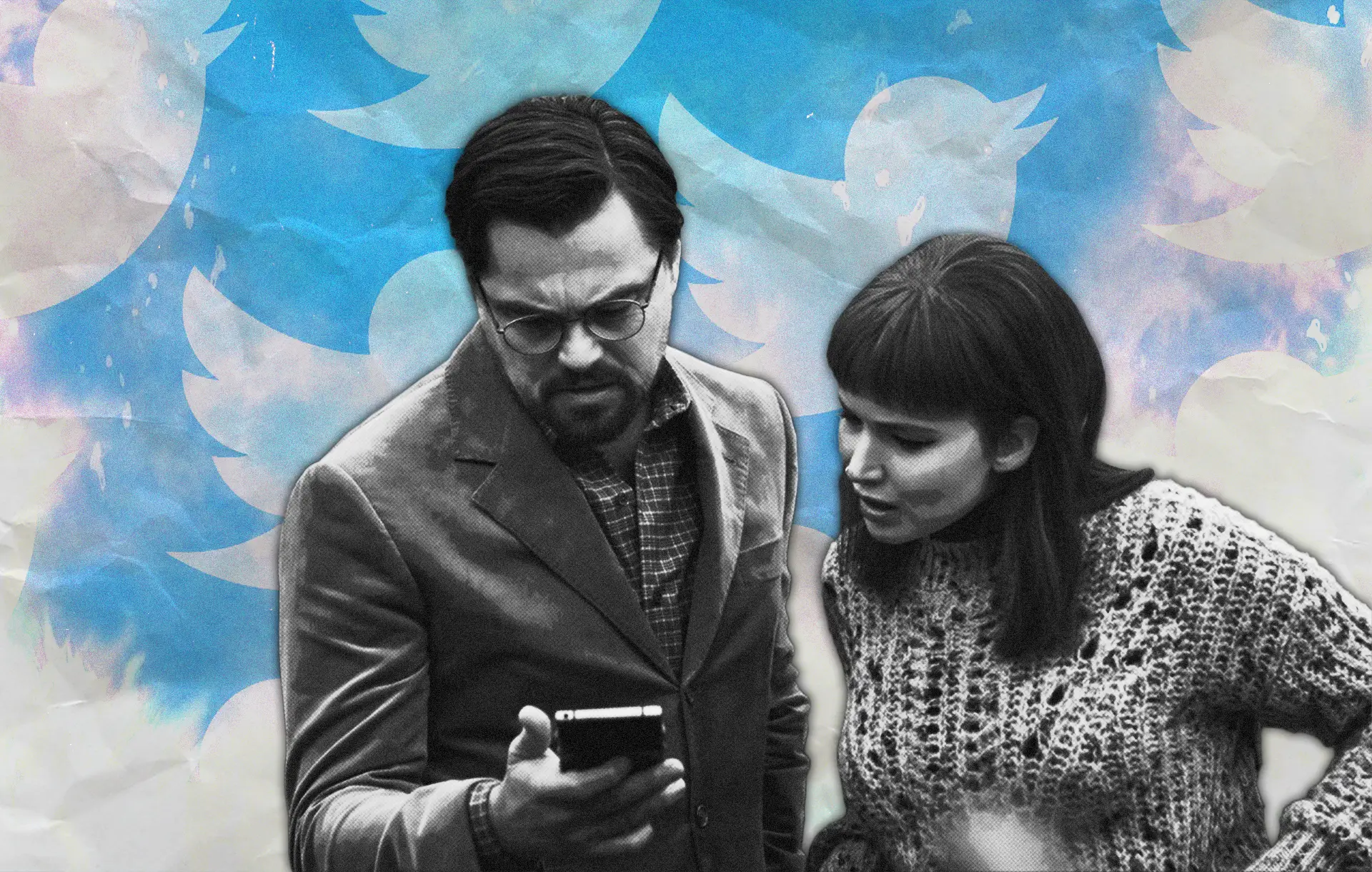It’s far from a rare occurrence, these days, for film critics to find themselves at odds with the vocal fans of a certain movie. About nine times out of ten, when this happens, it involves a superhero movie or another nerd-related property, in which the strident fanboys of Spider-Man or The Joker or Kylo Ren are outraged that critics have given their film anything less than unanimous approval.
Other times this happens with conservative, faith-based, or other projects in which having a political or culture war ax to grind with the press is a key part of the film’s marketing strategy
But what has transpired in recent weeks surrounding the film Don’t Look Up is a film vs. film critics conflagration that looks notably different from all of the others. It’s not part of an established property with preexisting fanboys. It also doesn’t break out particularly easily along political or culture war lines. But it’s been one of the more bitter conflagrations of its kind.
As the film’s awards campaign gets underway in earnest, it’s worth looking at the war between Don’t Look Up and critics, and how it has played out.
It’s the End of the World as We Know It…
Opening in theaters in early December and debuting on Netflix, Don’t Look Up is directed by Adam McKay, the former SNL head writer who followed up a series of popular comedies — Anchorman, Step Brothers, Talladega Nights, and The Other Guys — with a turn to more serious pictures like The Big Short and Vice. An Oscar-winning screenwriter for The Big Short, McKay wrote the film with longtime political journalist David Sirota, who conceived of the film’s idea.
A clear allegory about climate change that also took on unintentional echos of the Trump-era COVID-19 response, the film lays out a scenario in which a pair of scientists (Leonardo DiCaprio and Jennifer Lawrence) have discovered that a comet will strike Earth in six months and kill the entirety of the human race. But the Trump-like president (Meryl Streep) is more concerned with short-term political concerns, while the media is more concerned with celebrity gossip and TikTok content.
A clear allegory about climate change that also took on unintentional echos of the Trump-era COVID-19 response
I did not much care for the film. I found the film hectoring, condescending, obvious, and repetitive, its central analogy very faulty. I didn’t think the all-star cast was doing anything close to their best work, with Meryl Streep, in particular, giving one of her worst turns. It’s more a lecture than a story, like a two-hour version of the “we’re all buried in our phones” speech from I Think You Should Leave with Tim Robinson.
While I notably didn’t engage in groupthink, having filed my review right after attending the premiere and barely discussing the film with anyone else, my opinion lined up with those of lots of other critics.
The film has not received a complete critical drubbing; in fact, its Tomatometer score is 55 percent. Its audience score is 77 percent. Conversely, the world’s climate scientists — a profession very much flattered by the movie — are among its most vocal fans.
Movie vs. Media, Round 1
Because it’s a movie that’s critical of the media, perhaps it was natural for Don’t Look Up‘s filmmakers to pick a fight with the media, weeks before anyone had even seen the movie.
At the end of November, Vanity Fair published a profile of Adam McKay. In it, McKay talked about the new movie and what it’s about, while also sharing some intriguing personal stories.
But he also went into some detail, for the first time, about his personal and professional split with Will Ferrell, with whom he worked on Saturday Night Live, and on all of those hit comedies. The two dissolved their production company in 2019, but never really gave a reason why at the time; in the interview, McKay told the story of their falling out and admitted that the two hadn’t spoken in quite some time.
Perhaps unsurprisingly, the Ferrell stuff made a lot more news than anything else in the profile. After all, it was a newsworthy item, which solved something that had been a mystery for a couple of years, and was also a rare moment of a celebrity being candid about his falling out with another celebrity. After all, movies like Anchorman and Step Brothers mean a lot to people, and it matters to fans of such movies why the filmmakers behind them had split.
Others saw something much more nefarious:
Again: McKay revealed almost nothing about the movie in the Vanity Fair interview that wasn’t already public information, and most of the above headlines are in Hollywood trade publications and movie news websites. Those types of venues don’t typically run heady analysis of climate policy, although other parts of the mainstream media cover the subject extensively- the Times, contra the movie, runs deeply reported features about climate change frequently. And again, this all happened weeks before anyone had seen the film.
Movie vs. Media, Round II
Once they did, things stayed pretty bitter. Prior to the film’s theatrical release, the review embargo lifted on December 7 at 6:00 p.m. At 6:01, the film’s co-writer tweeted this:
First of all, nothing these days is ever “greeted with consensus celebration.” The monoculture is no longer a thing, and second of all, how exactly does the film “challenge power”? That implies that a group of critics who were probably paid little or nothing for their reviews is “power,” but the side with Netflix, Leonardo DiCaprio, and Meryl Streep is not.
McKay, Sirota, and others associated with the film have, since its release, sought to create the impression that those who didn’t like the film either don’t take climate change seriously, or somehow didn’t get the metaphor, or “missed the point,” or are “part of the problem.” or are somehow akin to the villains in the movie.
It was as though the film represented the anti-climate change cause itself, and to criticize the film was to question the cause.
The Question of Politics
There’s also the matter of the politics of the film. Don’t Look Up is clearly on the side of believing that climate change is a huge problem and that politicians in the mode of Donald Trump aren’t doing enough to stop it. But the film also takes aim at everyone from the mainstream news media to big tech and big business for their failure to adequately address the problem. Also, in the film, the Democratic Party pretty much doesn’t exist. McKay and Sirota are men of the political left, both of them past backers of Bernie Sanders, and Sirota even worked for Sanders’ campaign in 2020.
Now, it’s perhaps not a secret that the film criticism profession leans more to the left than not. Sure, a non-trivial percentage of the critical community is apolitical and got into writing about film because they didn’t want to write about politics or other more serious concerns.
The film found the sweet spot of places where the Sanders left and modern-day right agree
While most such critics are not avowed socialists, I would guess that of the critics who reviewed Don’t Look Up, whether they liked it or not, the majority more or less agree with the political views of the filmmakers, and are 100 percent aligned with what Adam McKay and Leonardo DiCaprio believe about climate change.
At least, in this case, there’s been no cancel culture posturing, as no one is accusing anyone else of censoring the film or wanting people not to see it.
But amusingly, the film also earned some praise from the small fraternity of conservative film critics. My colleague Sonny Bunch of The Bulwark, who leans right and is a serious critic, had positive things to say about the film. Breitbart’s John Nolte, who is very much NOT a serious critic, gave it a good review too, with both of them particularly praising the film’s critique of the media. After all, the film found the sweet spot of places where the Sanders left and modern-day right agree, and the idea that The New York Times is bad is shared by both the screenplay of Don’t Look Up, and most people to the right of Joe Manchin.
The Public Approves
Once the film arrived on Netflix, something interesting happened: It was hugely successful. It was in the top ten on the service for most of its first two weeks, while Netflix has called it the service’s #3 most-watched movie ever.
After years of “go woke, go broke,” it was welcome — even to those who didn’t much like the film — to see a film with that much of a strong, lefty political point of view resonate with the general public.
Will it make any difference to the fight against climate change? Probably not.




